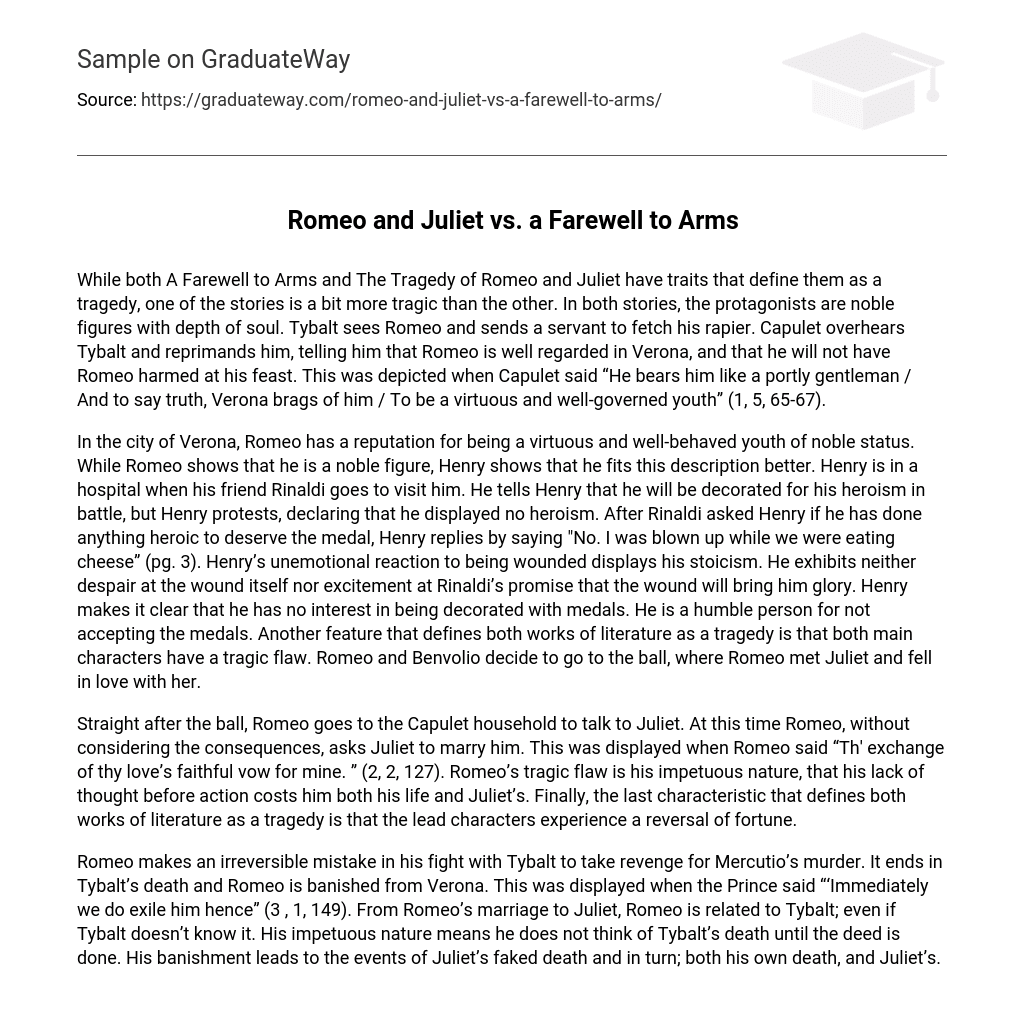Although both A Farewell to Arms and The Tragedy of Romeo and Juliet share characteristics that classify them as tragedies, there is a distinction in the level of tragedy between the two stories. Both narratives feature noble protagonists with profound souls. Romeo is spotted by Tybalt, who dispatches a servant to fetch his rapier. Having overheard Tybalt, Capulet reprimands him, asserting that Romeo is highly respected in Verona and should not be harmed during the feast. Capulet emphasized this by stating, “He bears him like a portly gentleman / And to say truth, Verona brags of him / To be a virtuous and well-governed youth” (1, 5, 65-67).
In Verona, Romeo is known as a virtuous and well-behaved youth of noble status. However, Henry, in a hospital, receives a visit from his friend Rinaldi. Rinaldi informs Henry that he will be honored for his heroism in battle. Henry protests, stating that he did not perform any heroic acts. When asked if he has done anything worthy of the medal, Henry simply replies, “No. I was blown up while we were eating cheese” (pg. 3). This unemotional response displays his stoicism; he shows no despair at his wound or excitement at the promise of glory. It becomes clear that Henry has no interest in being decorated with medals, as he humbly declines them. Both works of literature share the characteristic of tragedy, as both main characters possess a tragic flaw. Romeo and Benvolio decide to attend a ball, where Romeo meets Juliet and falls in love with her.
Immediately after the ball, Romeo visits the Capulet residence to converse with Juliet. During this encounter, Romeo thoughtlessly proposes to Juliet without pondering the potential outcomes. This is evident when Romeo states, “Th’ exchange of thy love’s faithful vow for mine” (2, 2, 127). Unfortunately, Romeo’s downfall stems from his impulsive disposition, as his rash actions ultimately result in the loss of both his own life and Juliet’s. Lastly, a common thread between these literary works is the protagonists’ tragic reversal of fortune.
Romeo commits an irreversible error in his altercation with Tybalt as a means of avenging Mercutio’s killing, resulting in Tybalt’s demise and Romeo’s expulsion from Verona. The Prince underscores this when he states “‘Immediately we do exile him hence” (3 , 1, 149). Due to Romeo’s union with Juliet, he is linked to Tybalt, unbeknownst to the latter. Romeo’s impulsive nature prevents him from contemplating the consequences of Tybalt’s death until it is too late. His banishment sets in motion the events leading to Juliet’s feigned death, which ultimately culminates in both Romeo and Juliet meeting their demises.





